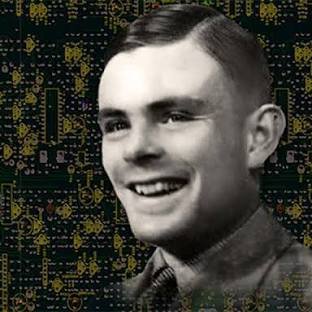Many consider Alan Turing to be the founder of modern computer science and artificial intelligence. His pioneering work in the mid-20th century laid the foundation for today’s technological revolution. Alan Turing‘s impact is immense, from his creation of a mathematical model that influenced AI and machine learning to his critical role in World War II. Despite intense persecution for his homosexuality, which led to his chemical castration, his contributions to science have been celebrated posthumously. This blog explores Alan Turing‘s extraordinary life, his influence on AI, and how his legacy continues to shape technology today.
Childhood and Schooling
Alan Turing was born on June 23, 1912, in London, England. His early fascination with patterns and numbers hinted at his future contributions to computer science. At King’s College in Cambridge, Turing excelled as a math prodigy, quickly gaining recognition for his exceptional problem-solving skills and innovative thinking.
AI Through a Mathematical Model: The Turing Machine
In 1936, Alan Turing published his seminal paper, “On Computable Numbers, with an Application to the Entscheidungsproblem.” He introduced the concept of a theoretical machine, now known as the Turing Machine. This abstract computing device could execute any calculation given the proper instructions and time. The Turing Machinebecame a foundation for understanding computation and a precursor to modern computers.
Among the earliest models of artificial intelligence, the Turing Machine envisioned machines replicating human thought processes. Algorithms that process data, learn from it, and make decisions—fundamentals of AI and machine learning—are rooted in Turing’s groundbreaking ideas.
Cracking Codes and Saving Lives in World War II
During World War II, Alan Turing applied his talents at Bletchley Park, the British government’s code-breaking center. His most significant contribution was his role in cracking the German Enigma code, a seemingly impenetrable cipher used by the Nazis. Turing invented the Bombe machine, which greatly sped up the decryption process, leading to critical Allied victories. His work shortened the war by up to two years and saved countless lives, cementing his legacy as a war hero.
Personal Tragedy and Persecution
Despite his monumental contributions, Alan Turing‘s personal life was marred by tragedy. In 1952, he was prosecuted for homosexual acts, which were illegal in the UK at the time. Given the choice between imprisonment and chemical castration, Turing chose the latter, a devastating decision that severely affected his physical and mental health. He was found dead on June 7, 1954, from cyanide poisoning, a death ruled as suicide. Turing’s story serves as a stark reminder of the injustices of his time, contrasting his scientific genius with the cruelty he endured.
Posthumous Recognition
Decades after his death, Alan Turing began to receive the recognition he deserved. In 2009, UK Prime Minister Gordon Brown issued a formal apology for Turing‘s treatment. In 2013, Queen Elizabeth II granted him a posthumous pardon. In 2021, Turing was honored by featuring his image on the new £50 note, alongside numerous institutions and awards named after him.
The Lasting Impact of Alan Turing on AI
The principles Alan Turing established remain central to today’s AI and machine learning. His 1950 paper, “Computing Machinery and Intelligence,” introduced the Turing Test, which evaluates a machine’s ability to exhibit intelligent behavior indistinguishable from a human. This test continues to be a benchmark for assessing machine intelligence.
Modern AI, from sophisticated neural networks to natural language processing, owes much to Turing’s early work. With the rise of machine learning, where algorithms improve through experience, Turing’s vision of machines learning and adapting has been realized. His influence extends to diverse fields like cybersecurity, robotics, and even quantum computing.
Conclusion
Alan Turing‘s life and work continue to inspire the field of AI. His legacy stands as a testament to the power of innovation and perseverance. Here at paive-ai, we are dedicated to honoring his memory by staying at the forefront of AI advancements. Understanding Turing‘s contributions helps us appreciate AI’s potential and motivates us to push the boundaries of what’s possible. If you enjoyed this article, check out this article about Ilya Sutskever, the Co-founder of OpenAI that is silently working on a new project that can change the world!


Leave a Reply